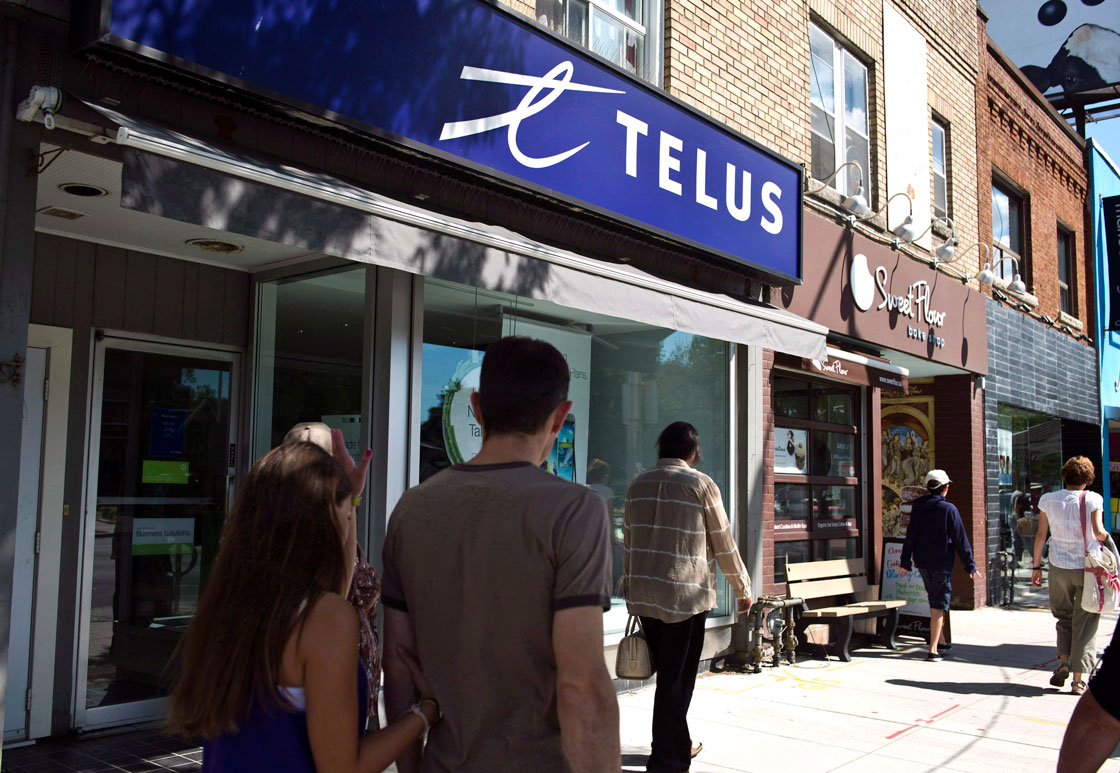Taxpayers may be the biggest winners when Ottawa releases on Wednesday afternoon a list of successful bidders for radio frequencies to be used to improve cellphone services across the country.

It’s expected that the frequencies, known as spectrum, will open up better and faster wireless services over time. But experts say another boon could come in the form of an unexpected boost to Ottawa’s pocketbook.
READ MORE: Spectrum 101, what consumers should know about the cellphone airwaves auction
Analysts now suggest that wireless carriers such as Rogers, Bell and Telus (as well as Quebecor/Videotron in Quebec) may have paid as much as $5.7 billion combined to divide up the new chunk of airwaves Ottawa has parcelled off.
That total is far higher than the paltry $1.5- to $2-billion experts were predicting at the outset of the sale last month, and a sum that could go a long way to helping the federal government meet its goal of balancing the federal books by 2015 or sooner.
“We believe that proceeds could be much higher than predicted,” Dvai Ghose at investment company Canaccord Genuity said Wednesday morning.
Winning those bands across the country would give each carrier a leg up over the others because they’re immediately compatible with spectrum used by major U.S. carrier AT&T.

Get weekly money news
AT&T uses the same network technology for both “3G” and “4G” services that all three big Canadian carriers do. The U.S. giant also uses the same Lower B and C bands up for auction in Canada for its advanced data and smartphone services.
Winning those “AT&T bands” would net big savings for a Canadian carrier on everything from new handsets to network equipment because the carrier could ride along on AT&T’s coat-tails when the U.S. carrier is ordering new devices or gear.
There are other factors that may have contributed to Rogers, Bell and Telus paying more than initially expected, as well, experts say.
To start, bids were blind in this sale (unlike in previous auctions), and Rogers may have tabled some aggressive offers to ensure it acquired spectrum that will keep it competitive with Bell and Telus.
Bell and Telus hold certain sharing agreements, experts say, that give the pair certain advantages over their chief rival, such as lower network costs.
Here’s how Canaccord Genuity sees the new windfall for Ottawa breaking down:
- Rogers pays between $2-3 billion
- Bell pays between $500-1 billion
- Telus pays between $500-1billion
- Quebecor pays between $300-600 million
- Other parties pay about $100 million
The money paid by the carriers goes into Ottawa’s general coffers. While that won’t affect your cellphone bill it could help consumers in other ways.
For an auction that was expected to generate far less money for the government than the 2008 sale, the revised estimates could actually trump what was raised five years earlier.
And with a Conservative government that may well shower tax cuts on an electorate ahead of a 2015 general election, a fatter spectrum payment could provide all the more reason to do so.







Comments